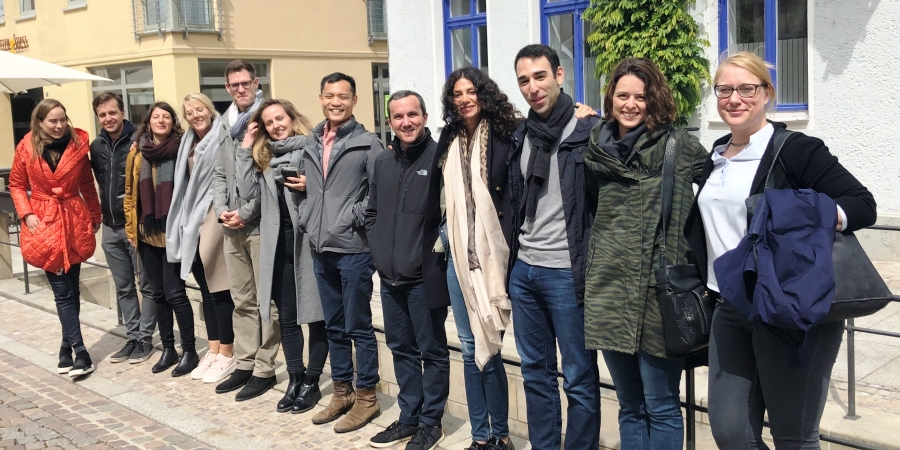Dr. Kampffmeyer from the Öko-Institut discussed ways to successfully implement environmental and human rights due diligence with ERL doctoral students.
In course of a jour fixe of the doctoral program “Ethics and Responsible Leadership in Business,” Dr. Nele Kampffmeyer gave an insight into her work as a researcher in the area “Environmental Law & Governance” at the Öko-Institut. The Öko-Institut is a 1977 founded research and consultancy institute for a sustainable future. Kampffmeyer focused on her research to environmental and human rights due diligence. This is a risk management process with whom companies can identify risks with respect to human rights violations and environmental damages, can prevent and mitigate them, and can account for them. Risks should not only assed in a company’s direct business environment, but also in their product´s supply chain, use phase, and end of life. Kampffmeyer thematised whether and to what extent self-commitments of companies suffice for the successful implementation of due diligence or whether legislation is needed. The German National Action Plan for Business and Human Rights, for example, primarily count on a monitoring of voluntary actions of companies. Kampffmeyer doubts the success of self-commitments. She illustrated this by referring to studies that she conducted, for example, about the partnership for sustainable textiles or the “green button”. In the discussion with the doctoral students, it was pointed out that clear legal regulations provide give companies planning security. How best practices influence regulations was discussed as well as which motivation companies and their decision makers have to implement environmental and human rights due diligence and which mindset supports such an implementation. Another issue of the discussion was whether a scandal is necessary for a change of awareness in an industry sector or whether there can be a trade-off between human rights and environmental protection. Kampffmeyer emphasized that to protect the environment means to protect human rights and that business models which are not sustainable should not survive.

